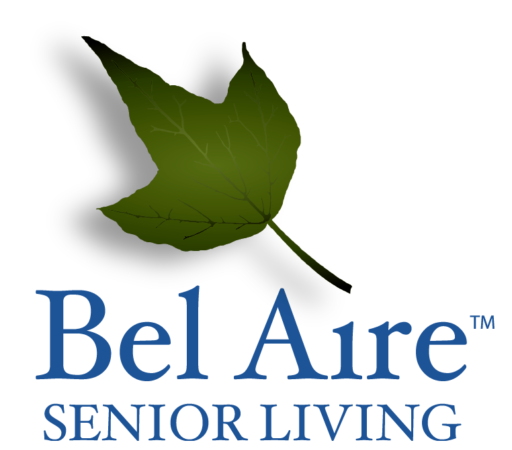The senior care industry is full of vocabulary that may be unfamiliar to those outside of the industry. Here are definitions of some commonly used terms.
Activities of Daily Living (ADLs):
Everyday activities such as bathing, grooming, eating, toileting, and dressing.
ADA (Americans with Disabilities Act):
Law passed by Congress in 1980, establishing a clear and comprehensive prohibition of discrimination on the basis of disability.
Administrator:
Generally, a licensed professional who manages the day-to-day operation of a care facility such as a nursing home or assisted-living facility.
Adult Day Care:
Daily structured programs in a community setting with activities and health-related and rehabilitation services to elderly who are physically or emotionally disabled and need a protective environment. This care is provided for during the day, the individual returning home for the evening.
Alzheimer’s:
Ambulatory:
Describes ability to ambulate, walk around, not bedridden or hospitalized.
Assisted Living:
In general, state-licensed program offered at a residential community with services that include meals, laundry, housekeeping, medication reminders, and assistance with Activities of Daily Living (ADLs) and Instrumental Activities of Daily Living (IADLs). Generally regarded as one to two steps below skilled nursing in level of care. Approximately 90 percent of the country’s assisted living services are paid for with private funds, although some states have adopted Medicaid waiver programs.
Convalescent Home:
Dementia:
Progressive neurological, cognitive, or medical disorder that affects memory, judgment, and cognitive powers.
HMO:
Home Health Care:
Provision of medical and nursing services in the individual’s home by a licensed provider.
Hospice Care:
Care and comfort measures provided to those with a terminal illness and their families- it can include medical, counseling, and social services. Most hospice care is furnished in-home, while specialized hospices or hospitals also provide this service.
Long-Term Care:
Long-term Care Insurance:
Privately issued insurance policy which covers the cost of nursing home care, assisted living, and home health care. Premiums are based on age, health, length of deductible period, amount paid, and duration of benefits. Currently pays only two percent of national nursing home costs.
Managed Care:
There is currently no standard definition of managed care, but it can best be described as a combination of insurance and a health care delivery system. The basic goal of managed care is to coordinate all health care services received to maximize benefits and minimize costs. Managed care plans use their own network of health care providers and a system of prior approval from a primary care doctor in order to achieve this goal. Providers include: specialists, hospitals, skilled nursing facilities, therapists, and home health care agencies.
Medicaid:
A jointly funded medical financial Federal-State health insurance assistance program, offering benefits to individuals with limited financial resources, the disabled, and the elderly. There are income eligibility criteria which must be met to qualify for Medicaid. Medicaid accounts for about 52 percent of the nation’s care costs, and is the source of payment for almost 70 percent of residents in nursing homes. The person must have exhausted nearly all assets and be in a nursing facility that participates in this program. Medicaid can reimburse Nursing Facilities for the long-term care of qualifying seniors, and in some states, Medicaid pays for Assisted Living care through Medicaid waivers.
Medicare:
Nationwide medical insurance program administered by the Social Security Administration for individuals 65 and over and certain disabled people, regardless of income. Provides for hospital and nursing facility care (Part A) and physician services, therapies, and home health care (Part B).
Medications Management / Medication Administration:
Formalized procedure with a written set of rules for the management of self-administered medicine, as in an assisted living setting. A program may include management of the timing and dosage for residents, and could include coordination with a resident’s personal physician. The resident must take the medication him or herself. For instance, the facility can remind the resident that she needs to give herself the medicine injection, but the facility cannot perform the actual injection itself.
Medigap Insurance:
Private health insurance policies that supplement Medicare coverage, covering health care costs above those covered by Medicare Part A or Part B. Does not provide benefits for long term care, covering primarily hospital and doctor bills.
Non-Ambulatory:
Inability to ambulate, walk around, and usually bedridden or hospitalized.
Nurse Assistant:
Nursing Home:
Facility licensed by the state that provides 24-hour nursing care, room and board, and activities for convalescent residents and those with chronic and/or long-term care illnesses. One step below hospital acute care. Regular medical supervision and rehabilitation therapy are mandated to be available, and nursing homes are eligible to participate in the Medicaid program. May be referred to as Nursing Facility or Convalescent Home. See also Skilled Nursing Facility.
Occupational Therapy:
Process to help individuals relearn activities of daily living, generally administered by a licensed therapist.
Physical Therapy:
Process that includes individualized programs of exercise to improve physical mobility, often administered following a stroke, fall, or accident. Physical therapists plan and administer prescribed physical therapy treatment programs for residents to help restore their function and strength.
Registered Nurse (RN):
Graduate trained nurse who has both passed a state board examination and is licensed by a state agency to practice nursing. The RN plans for resident care by assessing resident needs, developing and monitoring care plans in conjunction with physicians, as well as executing highly technical, skilled nursing treatments. A minimum of two years of college is required in addition to passage of the state exams.
Rehabilitation:
Therapeutic care for persons requiring intensive physical, occupational, or speech therapy.
Residential Care:
See Assisted Living.
Respite Care:
Temporary relief from duties for caregivers, ranging from several hours to days. May be provided in-home or in a residential care setting such as an assisted living facility or nursing home.
